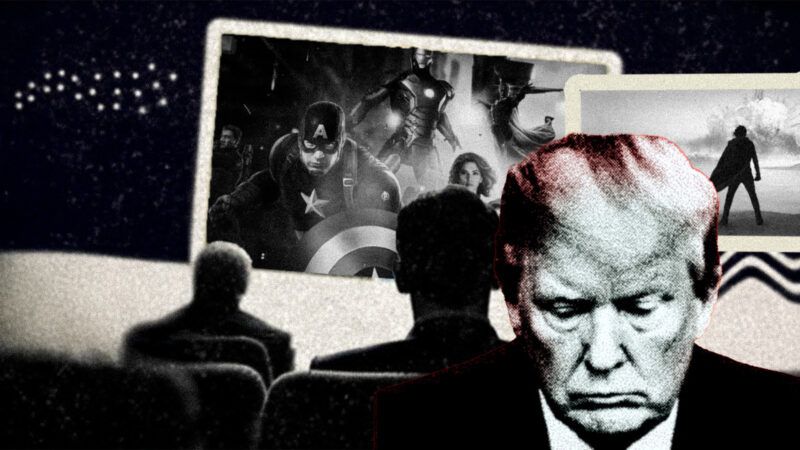Here's Why Trump's Plan To Tax International Films Won't Work
The president’s movie tariff proposal faces several legal and logistical challenges to implementation.

President Donald Trump announced on Monday that he will place a 100 percent tariff on movies made outside of the United States. "Our movie making business has been stolen from the United States of America by other countries," the president wrote in a post on Truth Social. "In order to solve this long time, never-ending problem, I will be imposing a 100% Tariff on any and all movies that are made outside of the United States."
Monday's announcement did not provide much detail about how Trump's plan would work. However, a plan presented to Trump earlier this year by actor and Special Ambassador to Hollywood Jon Voight to "Make Hollywood Great Again" could offer insight into the president's line of thinking. As Deadline reports, the plan suggested placing a tariff "on that production equal to 120% of the value of the foreign incentive received." For instance, if a production shot overseas received $50 million in government assistance, it would face a $60 million tariff from the United States.
Whatever direction the president takes, it is sure to face legal challenges. The plan would essentially amount to placing a tariff on a service, rather than a good, reports ABC7 News. And as the Office of the United States Trade Representative points out, "services are not subject to tariffs."
But even if these films were deemed as "goods," past court rulings would indicate that the president would have trouble imposing tariffs on these products. In 2020, the president invoked the International Emergency Economic Powers Act (IEEPA) to prohibit the use of TikTok in the United States. The order was ultimately blocked by courts, which determined that IEEPA does not allow the president to restrict personal communications that don't involve a transfer of value, or regulate the export or import of informational materials, which include films, literature, and other forms of media.
Imposing these tariffs under other laws that Trump has invoked to levy tariffs, including Section 232 of the Trade Expansion Act—which allows the president to impose duties on goods that undermine national security—is unlikely to pass legal muster. It's hard to argue that allowing Americans to watch Paddington in Peru, which was filmed in the U.K. and Peru, is a danger to the United States. As the global strategy firm Capstone writes, invoking Section 232 over movie imports "would make any tariff action ripe for legal challenges," as it stretches national security authority beyond its intended domain.
The idea also faces some practical challenges and real-world contradictions. International film markets make up more than 70 percent of the U.S. film industry's box office revenue. As Heeyon Kim, an assistant professor at Cornell University, points out: "Tariffs and likely retaliatory measures from other countries could result in billions in lost earnings, impacting not only major studios but also thousands of jobs in production, marketing, and distribution."
Moreover, modern film production is deeply globalized. An American-made movie might be financed in the U.S., shot in multiple countries, use post-production in India, and employ an international cast and crew. That makes any clear line between "foreign" and "domestic" nearly impossible to define or enforce.
It's unclear how much of Trump's film plan can be enforced, what studios it would target, or whether it could actually achieve anything meaningful beyond a simple political headline. As with many of Trump's trade ideas, the symbolism appears to matter more than the substance.


Show Comments (7)